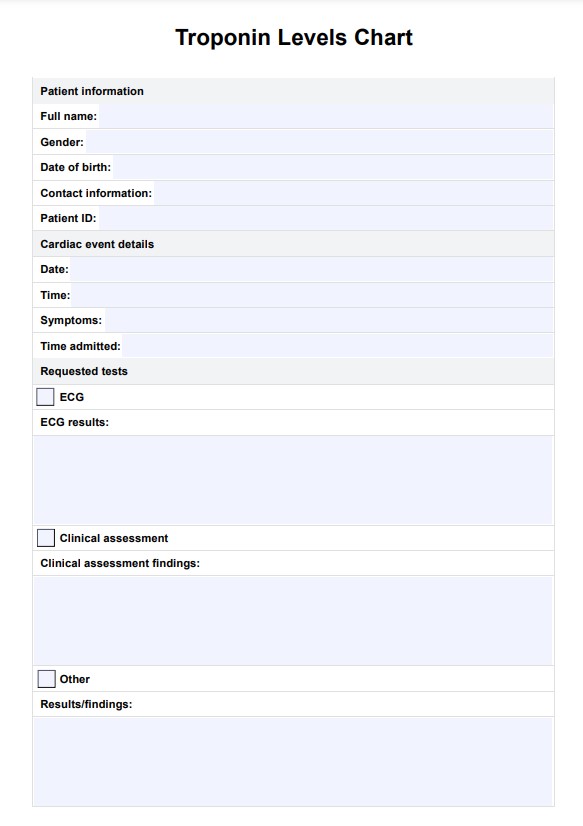Medical professionals who suspect a recent heart attack or those working in hospital emergency departments most commonly request this test.

Troponin Levels
Have this invaluable chart on hand when analyzing and interpreting troponin levels for the important and critical diagnosis of cardiac injury. Click here to download your free template.
Use Template
Troponin Levels Template
Commonly asked questions
Troponin level charts are commonly used in conjunction with clinical assessment and ECG testing to help diagnose a heart attack. The test may also be conducted if there is suspicion of other cardiac conditions or damage.
Medical professionals use the Troponin Levels Chart to collate blood testing results easily and efficiently for quick access to help diagnose serious cardiac events.
EHR and practice management software
Get started for free
*No credit card required
Free
$0/usd
Unlimited clients
Telehealth
1GB of storage
Client portal text
Automated billing and online payments











